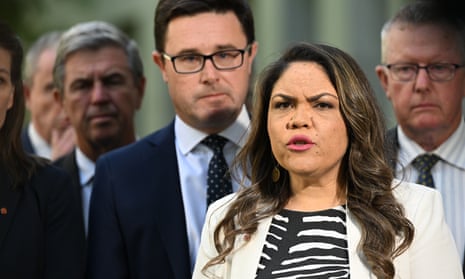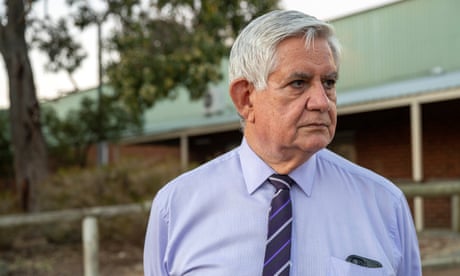Extract from The Guardian
Indigenous voice to parliament

She can’t mean the people I work for – 90 democratically elected Aboriginal men and women from the towns, remote communities and hundreds of tiny homelands of the southern half of the Northern Territory. People aged between 20 and 80, who are elected for three-year terms, meet three times a year out bush and who, for the past five years, have consistently expressed their strong support for the constitutionally enshrined voice to parliament the senator opposes.
A voice that allows local representatives to be heard about laws and policies that affect them and offer solutions informed by their unique knowledge and lived experience. What could be more practical? What could be fairer, more modest and unifying?
Roughly a third of the territory’s residents are Aboriginal. They can vote in local, territory and federal elections, and also determine the membership of the Central, Northern, Anindilyakwa or Tiwi land councils.
Price is entitled to ignore the clear will of the democratically elected members of the land councils. However, her stance also demonstrates perfectly why electing Aboriginal politicians is not enough and why the voices of Aboriginal Territorians need to be heard by the parliament.
The ignorance expressed this week about the voice – genuine, feigned or self-inflicted – is only surpassed by the lack of knowledge about the rigorous and inclusive process that has led us here and about how long-standing our desire to be heard is.
Central Land Council delegates deliberately chose the site of the famous 1966 Wave Hill Walk-Off to gather in August 2016 with the elected members of the Northern Land Council to reaffirm their commitment to the principles of the 1988 Barunga statement and the 1998 Kalkaringi statement.
“Constitutional reform must deliver meaningful and enduring benefits for our peoples. We are prepared to examine models for constitutional reform that deliver such benefits,” they resolved.
We have pursued this quest for self-determination ever since. In April 2017, almost 100 central Australian Aboriginal people took part in Australia’s greatest exercise in deliberative democracy – the 12 Uluru regional dialogues that culminated in the Uluru Statement from the Heart. For three days they gathered with local facilitators and constitutional law experts at Ross River, east of Alice Springs, to educate themselves about our founding law.
They explored which constitutional changes would be most likely to deliver positive change to their communities. Well-briefed interpreters translated complex legal ideas into local languages. They questioned, they argued and they settled on a way forward.
The co-chair of the dialogue, my predecessor, David Ross, called it “one of those great moments where everything fell into place and everyone, young and old, participated”. He was pleased “to see everyone grab this opportunity with both hands and get involved”.
Co-chair Barbara Shaw, the former general manager of Tennant Creek’s Anyinginyi Health Service, said: “I was quite overjoyed that we had a number of young people who had the confidence to stand up and make comment. One of the things that was quite moving was that we had a lot of people who were starting to get the fire back in the belly. They were saying ‘this is the first time we were able to get together from all around the country to talk about an issue that is important to all of us’.”
Participants supported a statement of acknowledgement in the constitution, dealing with the constitution’s “race power” in a way that prevents discriminatory law-making, a representative voice to parliament, treaty and the outlawing of racial discrimination. It also chose 10 delegates to the historic convention at Uluru.
Since we gifted the Uluru statement to the Australian people, our elected members have taken every chance to support a constitutionally enshrined voice to parliament.
From their Brumby Plains statement in 2017 to the resolutions they passed at their council meetings at Yulara Pulka in 2019 and Tennant Creek in 2021 they have been unwavering.
How many more times do they need to say it?
Last August, the executive committees of the Northern Territory’s four Aboriginal land councils met again at Kalkaringi to call for a referendum on the voice within this term of government.
These elected leaders know and represent their people best. How much clearer can they possibly be?
What else can they do to convince the nation that they want a voice?
No doubt they also represent people who have not yet engaged with the voice, who neither support nor understand it. If you look for it you can find ignorance everywhere, including the federal parliament.
At Kalkaringi, the late CLC chair Kunmanara Hoosan said we need to educate ourselves about the proposal that will be put to all of us soon. “We gotta keep talking about it, we can’t just pass this resolution,” he said.
We should all try to be as kind, compassionate and civil as Kunmanara Hoosan as we debate the referendum.

No comments:
Post a Comment